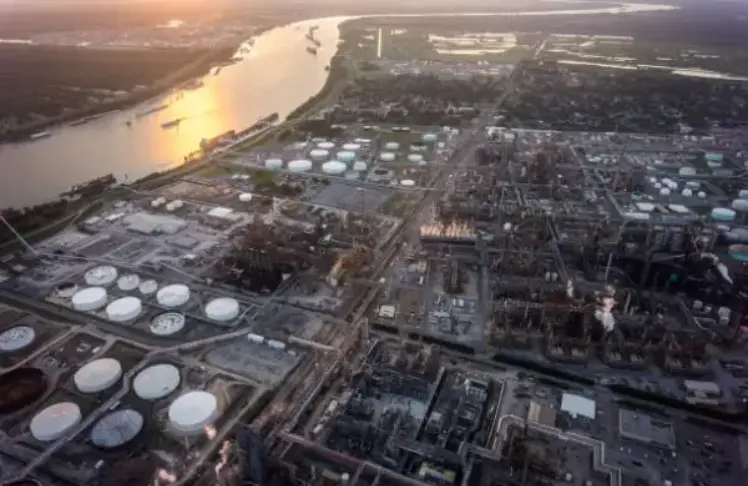
If Formosa Plastics, the Taiwanese chemical company, is ever able to open its hotly contested plastic plant slated for St. James Parish, it will have an enviable property tax bill: $0.
As part of the incentive package — both the state and local governments offered Formosa to locate its $9.4 billion factory just south of Baton Rouge — Formosa’s property taxes will be waived completely for a decade, to the tune of about $1.4 billion. The factory, which will be about a mile from a local elementary school with a 99% Black student body, is permitted to emit 800 tons of toxic air pollution annually, but won’t contribute at all to the local education system or public infrastructure thanks to the tax break.
According to a new report published last week by the Environmental Integrity Project, the boom in American plastics manufacturing that has occurred in recent years is more often than not driven by similar tax breaks, making it so factories can operate in often Black and brown communities with little to no tax burden.
The report’s authors looked at 50 facilities that were either newly built or expanded over the past 12 years, and found that 32 received tax subsidies that amounted to $9 billion. Like the planned Formosa plant, they tend to be located in non-white communities: 591,000 people live within three miles of those 50 plants, and two-thirds of them are people of color. While the boom in plastics has seen new plants open across the country, the major concentration remains along the Gulf Coast in Texas and Louisiana — and in those two states, the annual tax subsidies are larger than the budgets of the local environmental protection agencies.
“We don’t need taxpayer support for private companies that essentially manufacture pollution: single-use plastics that end up as litter, and toxic air pollution that disproportionately hurts communities of color,” Alexandra Shaykevich, a research manager at EPI and a coauthor of the report, said in a statement. “The plastics industry deserves penalties and more oversight — not more government handouts — for the environmental harm it is causing.”
These subsidized plants often operate with impunity, too, when it comes to their emissions. According to data from the Environmental Protection Agency, 84% of the 50 plants violated their pollution permits within the last three years. In one instance detailed in the report, a plant in Westlake, Louisiana, that manufactures the kind of plastic used in soda bottles emitted 90 times the amount of volatile organic compounds it was permitted for the entire year in just the first five months. In response, the state EPA has updated the plant’s permitting four times between 2018 and 2023, allowing it to emit three times as many VOC emissions as it was originally allowed.
The Formosa plant is far from the only proposed plant in the country that would bring more toxic pollution and carbon emissions to predominantly Black and brown communities in the name of producing a product that, after a brief window of utility, only adds to the burgeoning plastic waste crisis. According to the report, a total of 10 new plants are currently being considered for construction in the next five years, along with the expansion of 17 existing plants.















